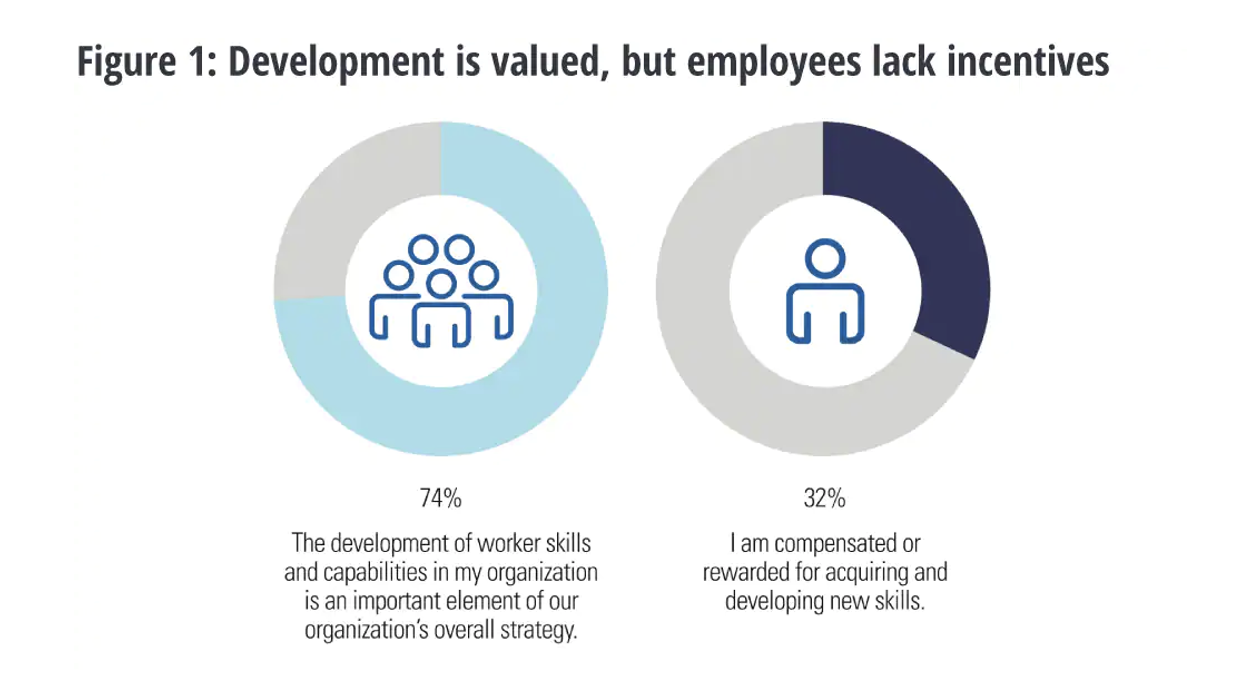Listen to this blog:

The last couple years of COVID adaptations and protocols have company leaders reconsidering how they value and invest in their workforces. As we’re seeing throughout The Great Resignation, employees are seeking more flexibility, autonomy and more meaningful work. Likewise, forward-thinking employers are putting changes in place that will help to develop more flexible, adaptable and valuable workers. The key element for both employees and management in unleashing employee potential seems to be opportunity. Specifically, turning your organization into an opportunity marketplace.
According to a Deloitte Global Survey, one of the surest ways for business leaders to create better opportunities for their companies is to make it possible for employees to create better opportunities for themselves. That said, there is a big disconnect between this theory and the practice. Management believes that employee development is an important element of their strategy, yet employees do not feel valued or rewarded for acquiring new training or skills.

Given these findings, it’s not surprising that many employees feel their skills would be better appreciated elsewhere. This is just one of the factors contributing to The Great Resignation that is taking place today.
Creating an Opportunity Marketplace
Opportunity marketplaces offer defined opportunities for their employees in training, mentorship, project participation, networking, and other aspects of professional personal development. In an opportunity marketplace, it’s important to define for employees how these resources lead to opportunities. In this environment, employees see the value in investing in themselves and are empowered to evaluate, choose and act on opportunities. When the training and opportunities offered are aligned with company values and skills needed, the whole organization becomes more efficient and productive.
Other steps:
- Poll employees on the current opportunities provided. Are they satisfied with the number of opportunities available? Are adequate resources available? Do employees understand the value of acquiring new skills?
- Define the process to identify and choose opportunities. Who will manage the process?
- Consider how different employee demographics view opportunities. Some workers may value longevity with a company and make long-term commitments to developing new skills if they see a path to new opportunities. Other workers who do not plan to stay at one company for a long period of time may still see the value in acquiring new skills; it then becomes management’s job to show how they may enjoy taking advantage of new opportunities within the company.
- Defined employee reward, recognition, and performance improvement programs effectively communicate what’s important to an organization and can include rewards and recognition for completing training modules or reaching other required benchmarks.
As companies shift to the concept of an opportunity marketplace, they recognize the workforce as the human resource that it is. By unleashing the potential of employees, organizations can maximize their return on human capital investment.
Contact us to discuss how a defined employee incentive, reward and recognition program can augment your Opportunity Marketplace and unleash the potential of your employees.





0 Comments